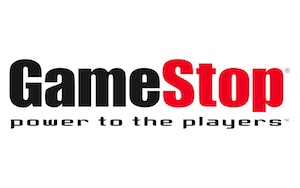If anyone loves video games, it’s college students. Corvallis is a college town which prides itself in having small business alternatives, yet the only used video game store within miles is GameStop. Heck, even Newport has one: Recycle Video Games on Route 101.
Simply put, there’s something extraordinary about visiting local game stores. For one, they’re unlike any other location you can visit, and always offer unique item variations with a friendly face on the side. But unfortunately, in this “more for less” world where you really get less for more, we don’t always have these options.
GameStop is a retail organization specializing in new and used video games. In Oregon there are 33 GameStops, with most located in shopping centers and malls. GameStop has grown steadily over the years, absorbing other chain-owned video game stores such as Game Crazy, EB Games, and Babbage’s. Their size, however, isn’t the biggest problem—their fly-by-night business practices are.
GameStop purchases used games from consumers for less—much less than most other independently owned shops—and resells them for ridiculous amounts. Oh, but it’s still cheaper than a brand-new copy, which really ticks off game publishers plugging new products. They’re certainly not Walmart, but they’re still far from the world’s best business.
For starters, GameStop associates sometimes access new copies of video games without even offering an opened-item discount, and sometimes it’s even ordered by their corporate division. Forbes highlighted a recent incident in which the GameStop corporation instructed stores to open copies of the video game “Deus Ex: Human Revolution” and remove coupons issued with each game. The coupons would have allowed consumers to access a digital copy of the game on a service called OnLive.
And why remove such a coupon? OnLive, being an online cloud streaming service, is a direct competitor of GameStop. To rationalize its action, the company claimed it wasn’t right for the game publisher to include these offers within its product. Still, this doesn’t justify removing offers from consumers’ purchased items without their consent.
But this is just the beginning. Countless consumers have voiced opinions on GameStop, as large as they are, being much too preachy in the way they market consumer subscriptions. If you wanted to purchase a video game in the old days, you would simply walk in, grab it, pay, and walk out. That’s it. Today, however, most clerks (more than likely against their will) plug subscriptions to GameStop’s “power savings” programs, magazines, and other products that probably don’t interest the consumer.
Last but certainly not least, GameStop’s exchange rates for used video games are absolutely abysmal. Consumers are given a list of popular game exchange rates behind the counter in most stores, but that’s where the transparency ends. There are no set-in-stone rates, which also explains why so many people resort to asking if anyone on the internet knows the company’s mysterious trade-in rates. But to give you a general idea of what their payout is, an average $60 game will probably get you $6 to $10 back in cash, and possibly a little more in store credit. As for games they sell “new” for $30 and under, good luck getting anything back.
Granted, people are going to shop where they want to shop, and it’s their right as citizens. But the fact that Corvallis residents have no other options when it comes to trading in used video games is just sad. A local alternative would not only offer better prices and practices, but also give consumers more options with video games from previous decades. It would be wonderful to see another used game store in the area because, hey, each county has its own college. One even has programs partially devoted to the study of video games.
By Sean Bassinger
Do you have a story for The Advocate? Email editor@corvallisadvocate.com


